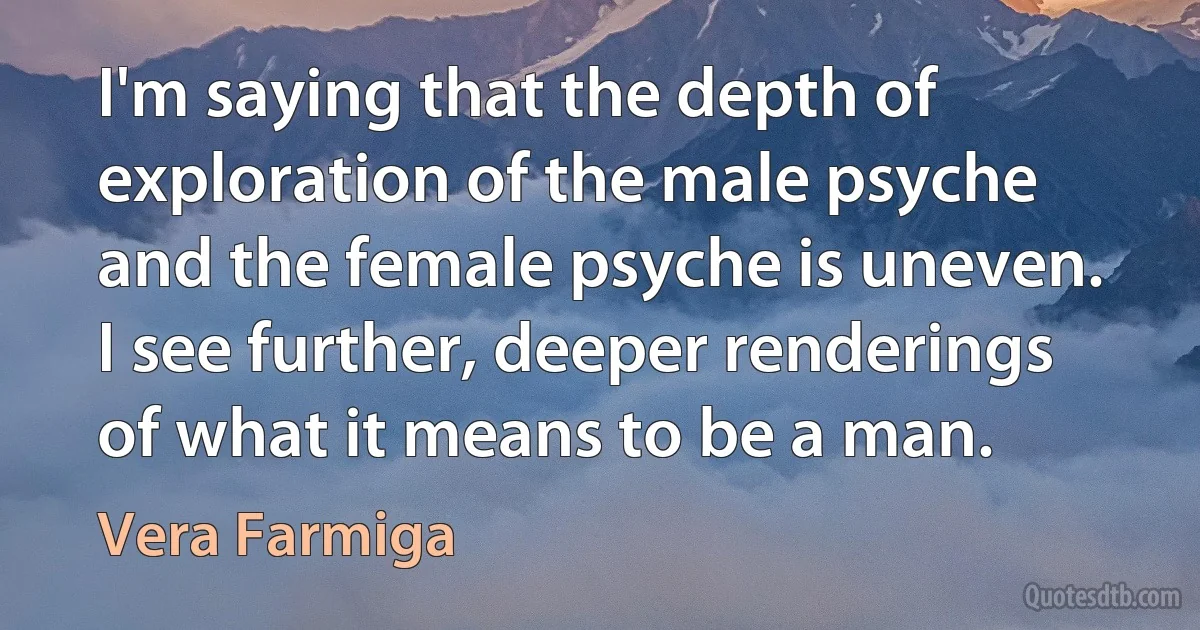Saying Quotes - page 100
The Lord ... said: Unless a man shall eat my flesh, he shall not have in himself eternal life. Certain of his disciples, the seventy to wit, were scandalised, and said: This is a hard saying; who can understand it? And they departed from him, and walked with him no more. His saying ... seemed to them a hard one. They received it foolishly: they thought of it carnally. For they fancied, that the Lord was going to cut from his own body certain morsels and to give those morsels to them. Hence they said: This is a hard saying. But they themselves were hard: not the saying. For, if, instead of being hard, they had been mild, they would have ... learned from him what those learned, who remained while they departed. For, when the twelve disciples had remained with him after the others had departed, ... he instructed them, and said unto them: It is the spirit that quickeneth; the flesh profiteth nothing. The words, which I speak unto you, are spirit and life.

George Stanley Faber
Geraldine Doogue: I'm intrigued by Anita saying she had to learn about systems. You had to learn about the sociology of systems and structural change, and that was obviously quite a journey for you.Anita Sarkeesian: Yeah, absolutely. I sort of joke about how it was the most liberating thing that ever happened to me, and also the most frustrating for everyone around me. Cause, like, when you start learning about systems, everything is sexist, everything is racist, everything is homophobic, and you have to point it all out to everyone all the time. So there's a good year of my life where I was the most obnoxious person to be around. And then you settle into it, you start to understand, like, oh people have been living within these systems, and it was just sort of a liberating moment for me. You learn how to pick and choose your battles and that sort of thing.

Anita Sarkeesian
Meat-eating is undesirable if the person is interested in physical and mental well-being, in securing tranquility for the body and mind. ... The greatest religious teachers have always recommended a vegetarian diet because it is a diet that stills the mind as well as strengthening the body. They are unanimous in saying that a peaceful mind, a serene mind, is necessary to recognize the God within you. "Blessed are the pure in hearth; they shall see God," the Bible says. And yoga strives to calm and pacify the mind so that the person can recognize the God within.

Satchidananda Saraswati
I mean, why am I considered an 'it girl?' Because I'm in a lot of movies right now or am on the covers of magazines? I just hope there is something solid behind that. Because here's the thing with 'it girl' status. It's great and amazing that anybody is saying that at all. But how long does that last?

Amanda Seyfried
Being the source of goodness, God, even after our failures, calls us anew, not effacing entirely from our mind the knowledge of good, even if we have turned away from virtue through sin. This is what God, at present, also does for Adam in calling him although he has hidden himself, saying to him: 'Adam, where art thou?' Adam, in fact, had been placed there by God for the purpose of working and guarding Paradise; he had received this place from Him to be his own. Having distanced himself from there by disobedience, it is proper that he should hear from God: 'Where art thou?

Didymus the Blind
Many associate the word scientific with physics. But it means much more than that. Scientific management means a constant search for the facts, the true actualities, and their intelligent, unprejudiced analysis. Thus, and in no other way, policies and their administration are determined. I keep saying to the General Motors organization that we are prepared to spend any proper amount of money to get the facts. Only by increased knowledge can we progress, perhaps I had better say survive. That is really research, but few realize research can and should be just as effectively used in all functional branches of industry as in physics.

Alfred P. Sloan
It has changed a bit, of course. The speed and all that. But let me tell you something: in the olden times, let's say the year, I don't know, in the Sixties for instance, we would eat a plate of spaghetti and run out onto the pitch. Then people started saying 'they're too full', meaning you'd get bloated like a pig if you ate spaghetti. But this shows you those guys were clever because nowadays all the medical experts recommend pasta for athletes and footballers because you digest it slowly.

Alfredo Di Stefano
Chaucer, in his Canterbury Tales, makes the monk much better skilled in riding and hunting, than in divinity. The same poit, afterwards, in the Ploughman's Tale, takes occasion to accuse the monks of pride, because they rode on coursers like knights, having their hawks and hounds with them. In the same tale he severely reproaches the priests for their dissolute manners, saying, that many of them thought more upon hunting with their dogs, and blowing the horn, than of the service they owed to God.

Joseph Strutt
It is perhaps worth while saying that semantics as conceived in this paper (and in former papers of the author) is a sober and modest discipline which has no pretensions to being a universal patent-medicine for all the ills and diseases of mankind, whether imaginary or real. You will not find in semantics any remedy for decayed teeth or illusions of grandeur or class conflicts. Nor is semantics a device for establishing that everyone except the speaker and his friends is speaking nonsense.

Alfred Tarski
It's often said that with enough effort and determination you can do whatever you put your mind to. But saying those words and living them are different things, and my father has lived them. It's one of his defining qualities and I've seen it in action all of my life. Whatever he does, he gives his all and does it well. His desire for excellence is contagious. He possesses a unique gift for bringing that trait out in others, starting with those closest to him. He's always helped me be the best version of myself by encouragement and by example. He motivates me to work my hardest and to always stay true to who I am and what I believe. That's what he does: he draws out the talent and drive in people so that they can achieve their full potential. That's a great quality to have in a father and better yet in the president of the United States.

Tiffany Trump
I said to one of them, "Look after the baby, I've got washing," because we've got washable nappies. I said, "Look after the baby. Entertain her, do some words," because she's saying words, "Do any words." So I came back after I scraped all the stuff off, and he was going, "Say, ‘Wigan Athletic!'"

Tamsin Greig
Marx is, therefore, wrong in saying that when we pass from that in which the exchangeable wares differ (value in use) to that in which they are identical (value in exchange), we must put their utility out of consideration, leaving only jellies of abstract labour. What we really have to do is to put out of consideration the concrete and specific qualitative utilities in which they differ, leaving only the abstract and general quantitative utility in which they are identical.

Philip Wicksteed
I would not let her work until she was eighteen, and believe me, since the time she was being strolled down the street in her stroller, people were saying, "Can I use her in my commercial? Can I put her in my movie?” "No!” But I did let her take any class that she wanted to take. Singing, acting, dancing...

Michelle Phillips

![At every level, all the servants - even human bodies - need a leader. Look at human beings. If they lacked a head, they would lack everything. Rather, they only exist because they have a head. Since they have a head, it requires that they have other organs, just as in the limbs of the body. In their outer being [i. e. society, ], command rests with ministers and a vizier, which are analogous to the inner heart and breast, and other organs. This saying involves a number of sublime matters, but this one is sufficient. (Subh-i-Azal)](https://cdn.quotesdtb.com/img/quotes_images_webp/52/subh-i-azal-body-961752.webp)

